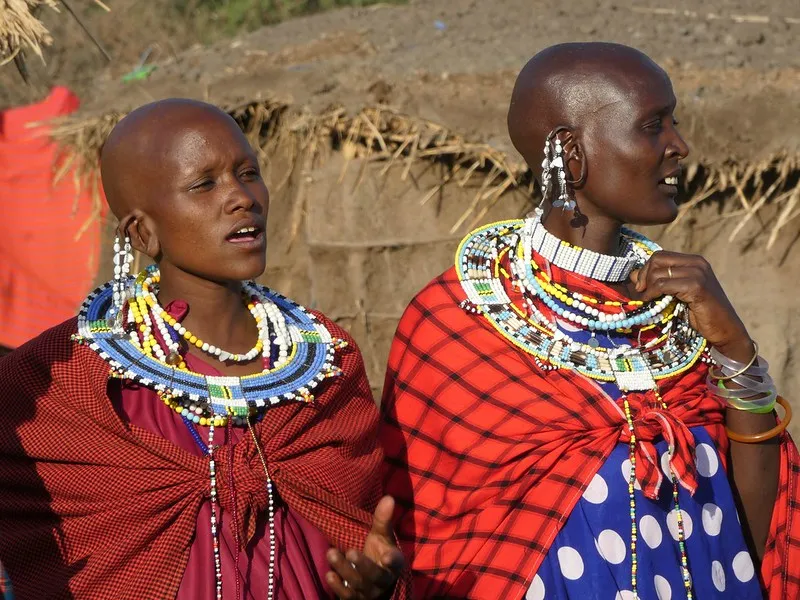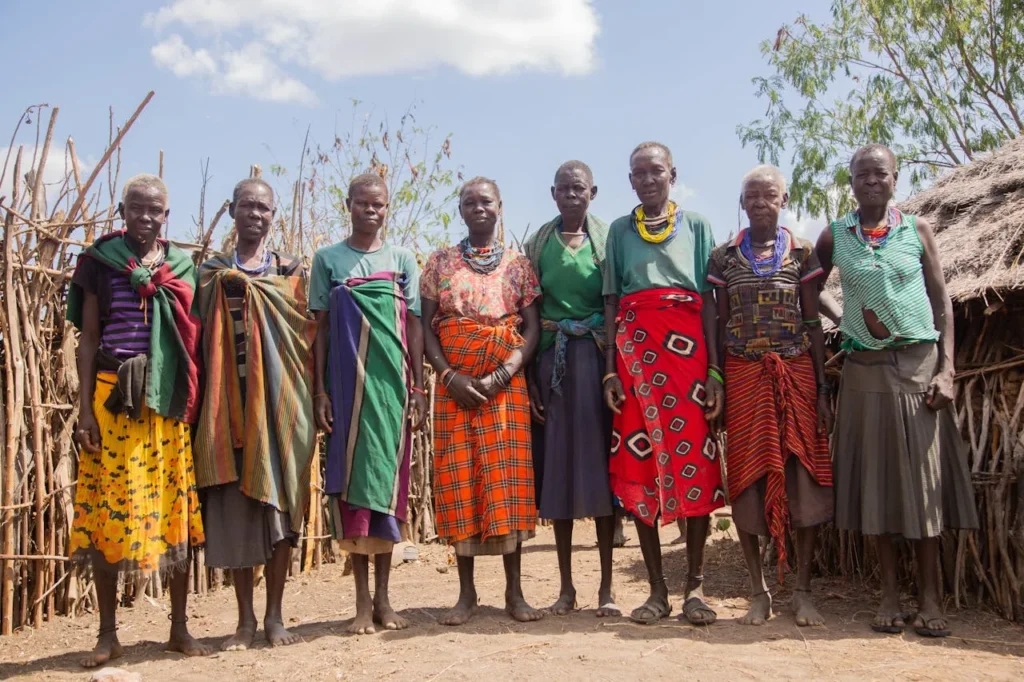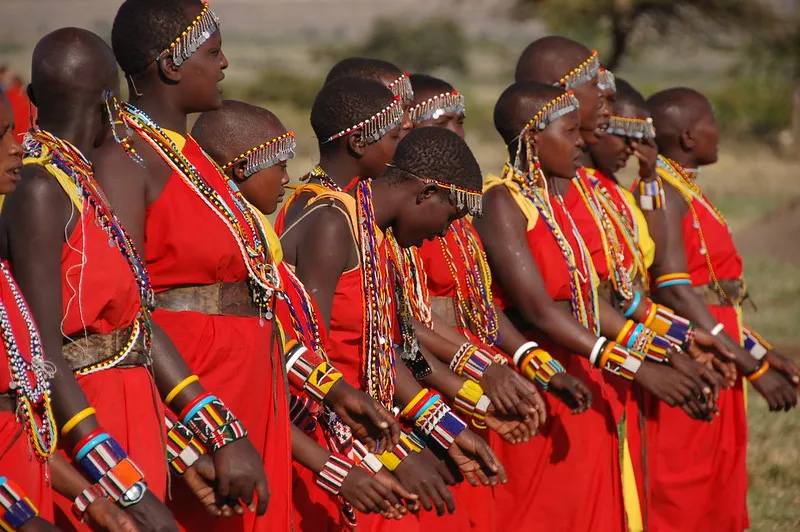Introduction
The Maasai tribe women of East Africa are an integral part of one of the most fascinating indigenous cultures in the world. Known for their vibrant attire, intricate beadwork, and deep-rooted traditions, these women play a crucial role in preserving the Maasai way of life. For travelers looking to experience authentic African culture, meeting the Maasai tribe women offers a unique and enriching experience.
Located primarily in Kenya and Tanzania, the Maasai people have managed to maintain their traditions despite the rapid modernization of East Africa. Visiting their villages provides a rare opportunity to interact with them, learn about their customs, and gain insight into their daily lives. Here are five unforgettable experiences that allow you to connect with the Maasai tribe women during your journey.
Table of Contents
1. Interacting with Maasai Tribe Women in Their Villages
One of the best ways to experience the culture of the Maasai tribe women is by visiting a Maasai village, known as a “manyatta.” These villages consist of small, circular huts made from mud, cow dung, and sticks, which the women are responsible for building. Upon arrival, visitors are often greeted with traditional songs and dances, a warm and welcoming gesture from the community.
During your visit, you will have the chance to:
- Learn about their daily routines, including cooking, childcare, and cattle rearing.
- Observe how they construct and maintain their homes.
- Participate in their traditional storytelling sessions, where elders share ancient folklore.
A village visit is an immersive cultural experience, allowing you to witness the strength and resilience of Maasai tribe women firsthand.
2. Discovering the Art of Maasai Beadwork and Handicrafts
The Maasai tribe women are renowned for their exquisite beadwork, which is not only a form of adornment but also a symbol of identity, social status, and cultural heritage. Each color in the beadwork holds a specific meaning:
- Red symbolizes bravery and strength.
- Blue represents the sky and sustenance from nature.
- Green signifies the land and health.
- White stands for peace and purity.

Travelers can take part in beadwork workshops where Maasai women teach the intricate techniques used to create their iconic jewelry. These sessions provide a hands-on experience and an opportunity to support local artisans by purchasing handmade souvenirs, ensuring that this traditional craft continues to thrive.
3. Participating in Traditional Maasai Dance and Rituals
Music and dance are vital aspects of Maasai culture, and experiencing these performances is a highlight of any visit. The Maasai tribe women have their own unique dances, separate from the famous “jumping dance” performed by Maasai men.
Women often perform rhythmic, call-and-response songs accompanied by graceful movements. Some of the ceremonies in which they participate include:
- Welcoming rituals – Special songs and dances performed to greet visitors.
- Marriage ceremonies – Where women celebrate unions with elaborate songs and dances.
- Coming-of-age ceremonies – Marking significant milestones in a person’s life.
Visitors are encouraged to join the dancing, making for an interactive and memorable experience.
4. Exploring the Role of Maasai Women in Their Society
The Maasai tribe women hold vital roles within their communities. Traditionally, they are responsible for:
- Raising children and passing down cultural traditions.
- Tending to livestock, particularly goats and sheep.
- Collecting firewood and fetching water, often traveling long distances.
- Managing household affairs and decision-making within the family.
In recent years, Maasai women have also begun to embrace education and entrepreneurship. Many organizations and initiatives have been established to support Maasai girls’ education and provide women with economic opportunities through handicrafts and tourism-related activities.
5. Learning About the Modern Challenges and Empowerment of Maasai Women
While the Maasai tribe women maintain strong ties to their traditions, they also face challenges such as limited access to education, healthcare, and economic opportunities. However, many are now leading efforts to bring positive change to their communities.
Some inspiring initiatives include:
- Women’s cooperatives – Providing income through beadwork and handmade crafts.
- Education programs – Encouraging young girls to pursue schooling and break barriers.
- Healthcare awareness – Spreading knowledge about maternal health and hygiene.
By visiting and supporting these initiatives, travelers can contribute to the empowerment of Maasai tribe women, ensuring a brighter future for the next generation.
Best Places to Experience Maasai Culture
To immerse yourself in the world of the Maasai tribe women, consider visiting the following locations:
- Maasai Mara National Reserve (Kenya) – A top destination for safari experiences combined with cultural interactions.
- Ngorongoro Conservation Area (Tanzania) – Home to Maasai villages that welcome tourists.
- Amboseli National Park (Kenya) – Offers stunning views of Mount Kilimanjaro and Maasai community visits.
- Lake Natron (Tanzania) – A less touristy but deeply cultural area to meet Maasai families.
Tips for Travelers Visiting Maasai Villages
To make the most of your experience while respecting the local culture, keep these tips in mind:
- Dress modestly – Covering shoulders and knees is recommended as a sign of respect.
- Ask for permission before taking photos – Some Maasai people may prefer not to be photographed without consent.
- Support local artisans – Buying handmade crafts directly from Maasai women helps sustain their livelihoods.
- Learn basic Swahili or Maa greetings – Simple words like “Supa” (hello) or “Ashe Oleng” (thank you) can create meaningful connections.

Conclusion
Meeting the Maasai tribe women is a rewarding and eye-opening experience that offers a glimpse into one of Africa’s most fascinating cultures. From engaging in their daily lives to participating in traditional dances and supporting women-led initiatives, travelers can form deep connections while appreciating the resilience and beauty of the Maasai way of life.
By embracing these cultural experiences responsibly, visitors not only gain a richer understanding of the Maasai tribe women but also contribute to preserving their traditions for future generations. If you’re planning a trip to East Africa, be sure to add a Maasai village visit to your itinerary for an unforgettable cultural adventure.

